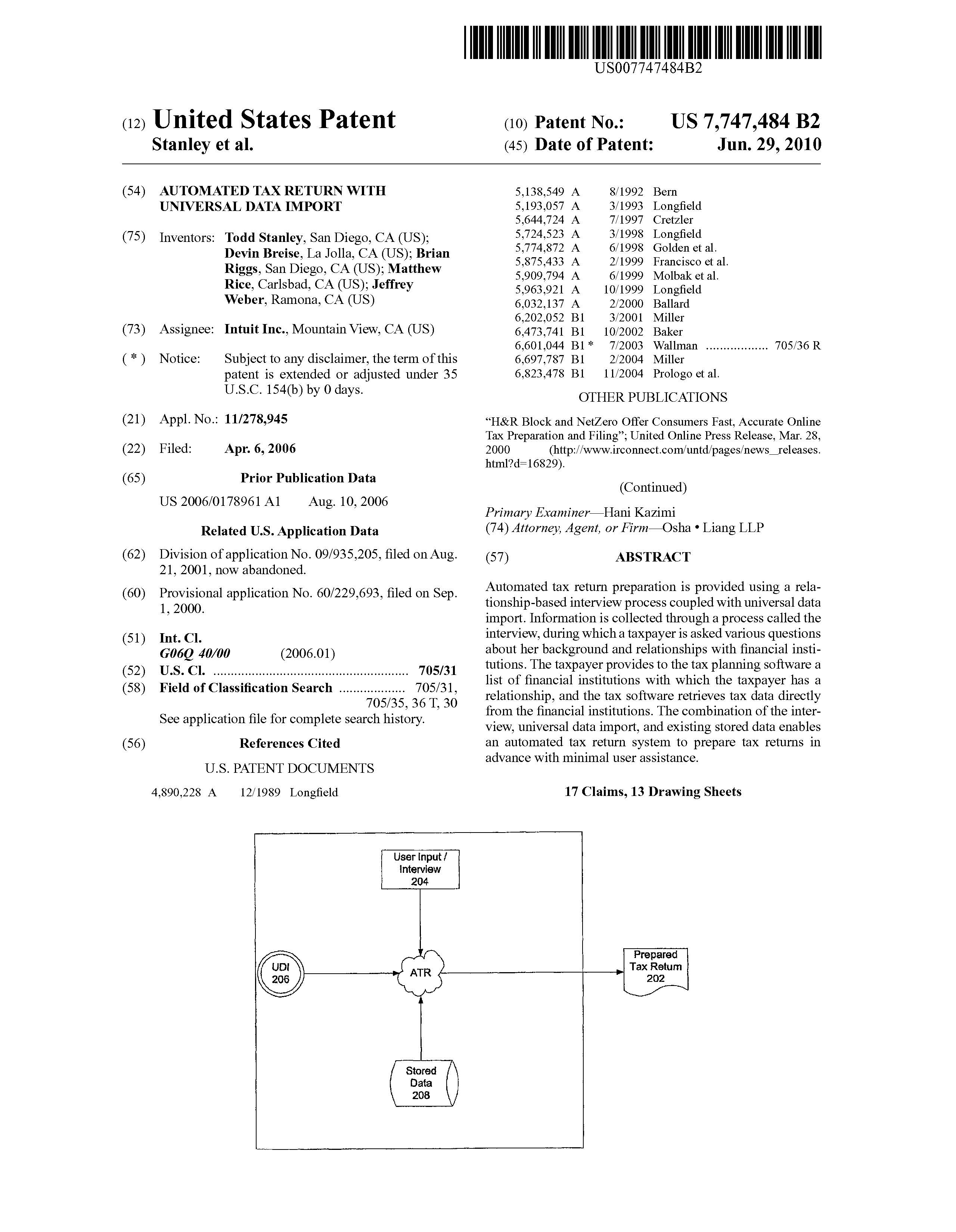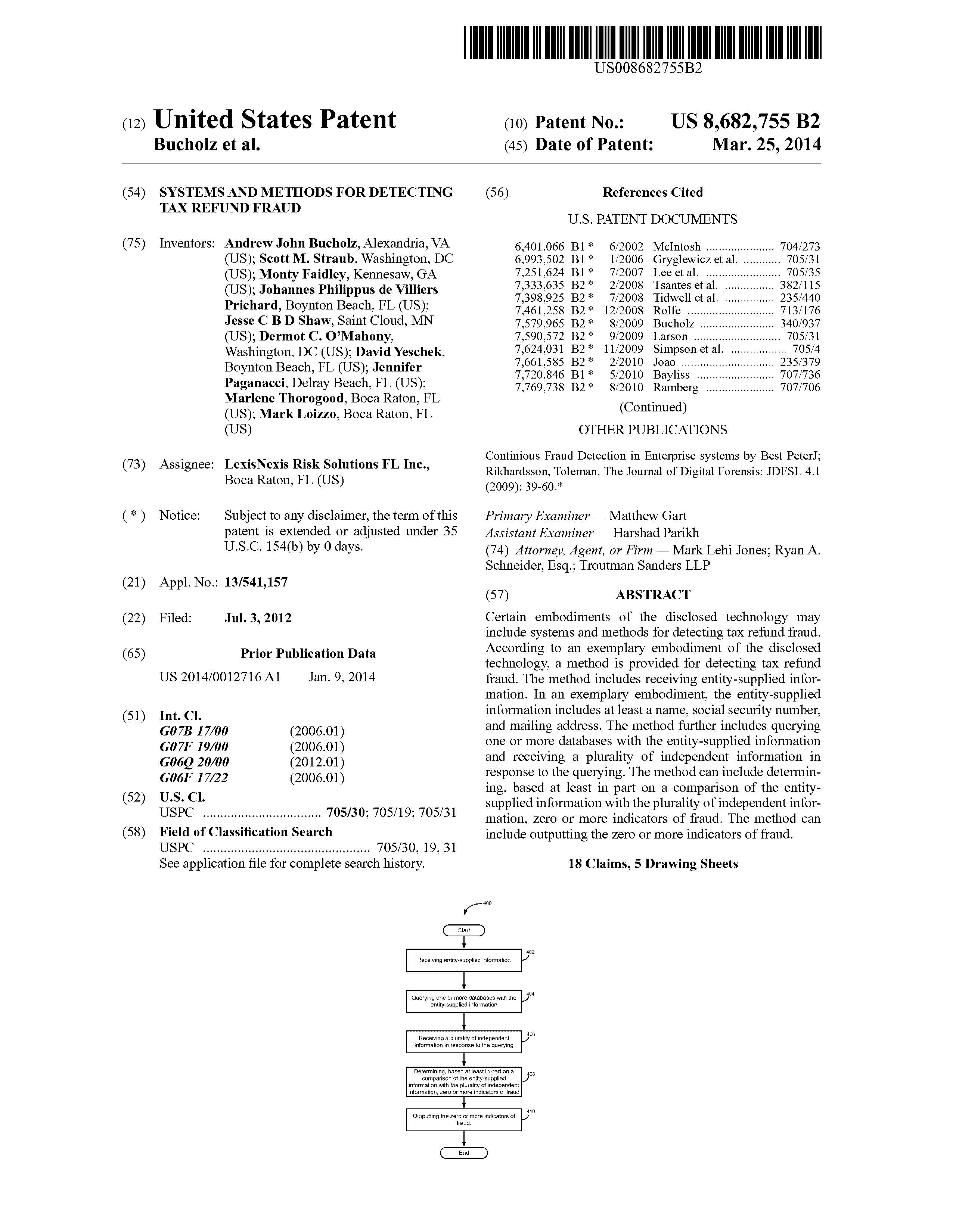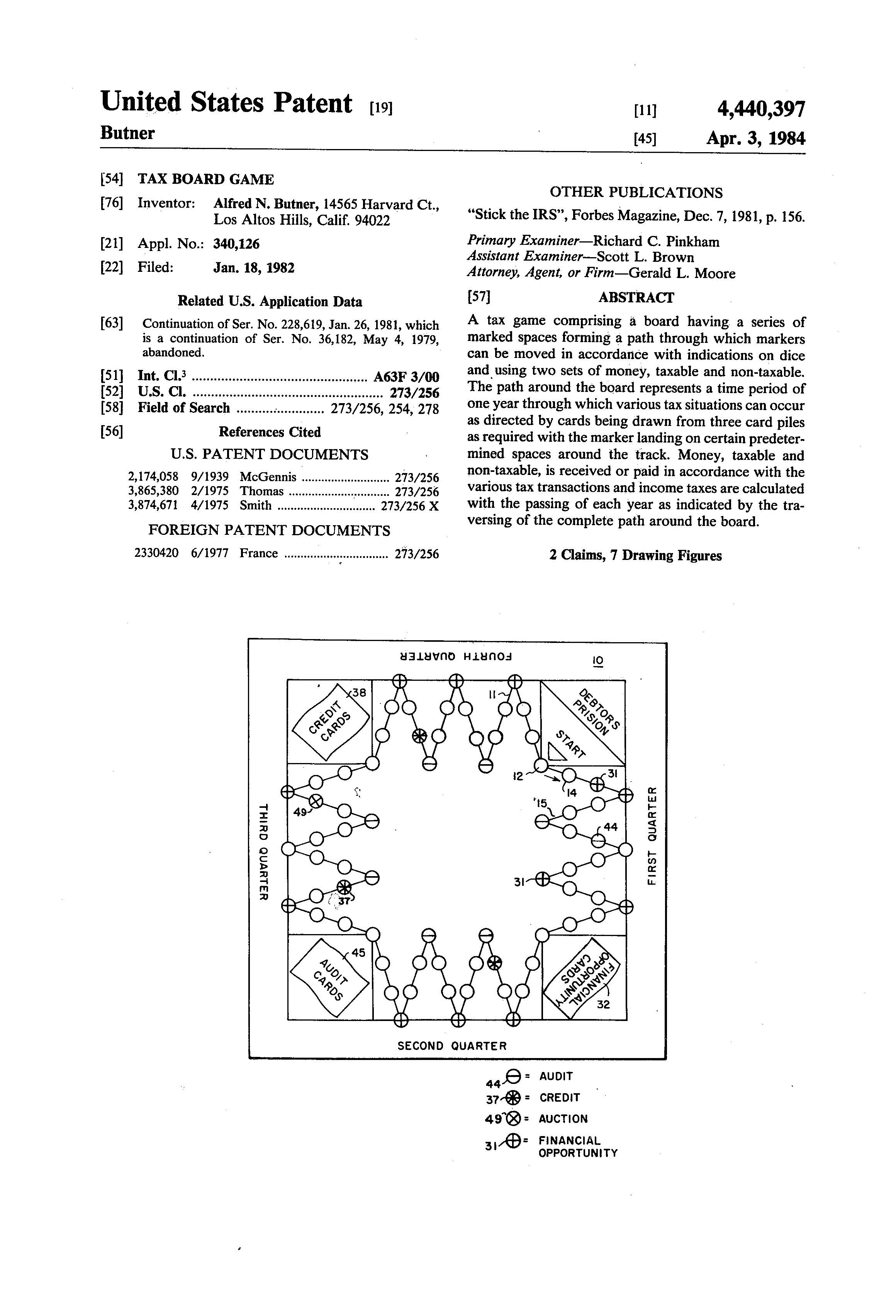The only guarantees in life are death and taxes. Tax day is upon us once again and odds are you are one of the millions of tax-paying Americans. What many may not know is that there is a host of patents associated with the tax industry.
Some of the first tax laws were created in 1913 when the 16th amendment was ratified, which allowed the government to enact and collect income tax. The 16th Amendment stated “Congress shall have power to lay and collect taxes on incomes, from whatever source derived, without apportionment among the several states, and without regard to census or enumeration.”
The first tax day was March 1, 1914, but the “Revenue Act” of 1918 pushed that date back two weeks to the 18th of March. It was not until 1955 that the Internal Revenue Code of 1954 gave taxpayers a new deadline of April 15th.
According to lawmakers, the date was moved as a way to help taxpayers. It was thought this extended time would allow Americans the opportunity to handle the complexities of the tax laws. According to House Ways and Means Committee Chair Daniel A. Reed, the new deadline also benefited accountants and other tax-return prepares as it eased their burden as well.
Through the years inventors and companies have patented a number of innovative methods and systems related to tax preparation. Below are a few examples.
 One technology that people use each year to file their taxes is Inuit’s TurboTax®. Inuit protects their tax preparation technology, in part, via U.S. Patent No. 7,747,484, entitled AUTOMATED TAX RETURN WITH UNIVERSAL DATA, which was granted in 2010.
One technology that people use each year to file their taxes is Inuit’s TurboTax®. Inuit protects their tax preparation technology, in part, via U.S. Patent No. 7,747,484, entitled AUTOMATED TAX RETURN WITH UNIVERSAL DATA, which was granted in 2010.
The software is described as an automated tax return preparation using “a relationship-based interview process coupled with universal data import. Information is collected through a process called the interview, during which a taxpayer is asked various questions about her background and relationship with financial institutions. The taxpayer provides to the tax planning software a list of financial institutions with which the taxpayer has a relationship, and the tax software retrieves tax data directly from the financial institutions. The combination of the interview, universal data import, and existing stored data enables an automated tax return system to prepare tax returns in advance with minimal user assistance.”
While most people dutifully pay their taxes, it is reported that 18.3% of Americans attempt to cheat or evade the tax system.  The IRS has reported that this evasion may cost up to $458 billion per year. U.S. Patent No. 8,682,755, entitled SYSTEMS AND METHODS FOR DETECTING TAX REFUND FRAUD, protects technology that may help with detecting tax fraud.
The IRS has reported that this evasion may cost up to $458 billion per year. U.S. Patent No. 8,682,755, entitled SYSTEMS AND METHODS FOR DETECTING TAX REFUND FRAUD, protects technology that may help with detecting tax fraud.
This patent, assigned to LexisNexis Risk Solutions FL Inc., “includes receiving entity-supplied information. In an exemplary embodiment, the entity-supplied information includes at least a name, social security number, and mailing address. The method further includes querying one or more databases with the entity-supplied information and receiving a plurality of independent information in response to the querying. The method can include determining, based at least in part on a comparison of the entity supplied information with the plurality of independent information, zero or more indicators of fraud. The method can include outputting the zero or more indicators of fraud.”
 There are even patents on tax-related board games. One example includes U.S. Patent No. 4,440,397, entitled TAX BOARD GAME. The games is described as follows: “a tax game comprising a board having a series of marked spaces forming a path through which markers can be moved in accordance with indications on dice and using two sets of money, taxable and non-taxable. The path around the board represents a time period of one year through which various tax situations can occur as directed by cards being drawn from three card piles as required with the marker landing on certain predetermined spaces around the track. Money, taxable and non-taxable, is received or paid in accordance with the various tax transactions and income taxes are calculated with the passing of each year as indicated by the traversing of the complete path around the board.”
There are even patents on tax-related board games. One example includes U.S. Patent No. 4,440,397, entitled TAX BOARD GAME. The games is described as follows: “a tax game comprising a board having a series of marked spaces forming a path through which markers can be moved in accordance with indications on dice and using two sets of money, taxable and non-taxable. The path around the board represents a time period of one year through which various tax situations can occur as directed by cards being drawn from three card piles as required with the marker landing on certain predetermined spaces around the track. Money, taxable and non-taxable, is received or paid in accordance with the various tax transactions and income taxes are calculated with the passing of each year as indicated by the traversing of the complete path around the board.”
For those who have already filed their taxes, sit back and enjoy the day. For those who have not, do not fret, there are still a few more hours left to get them filed.
Suiter Swantz IP is a full-service intellectual property law firm serving all of Nebraska, Iowa and South Dakota. If you have any intellectual property questions or need assistance with any patent, trademark or copyright matters and would like to speak to one of our patent attorneys please feel free to contact us.
